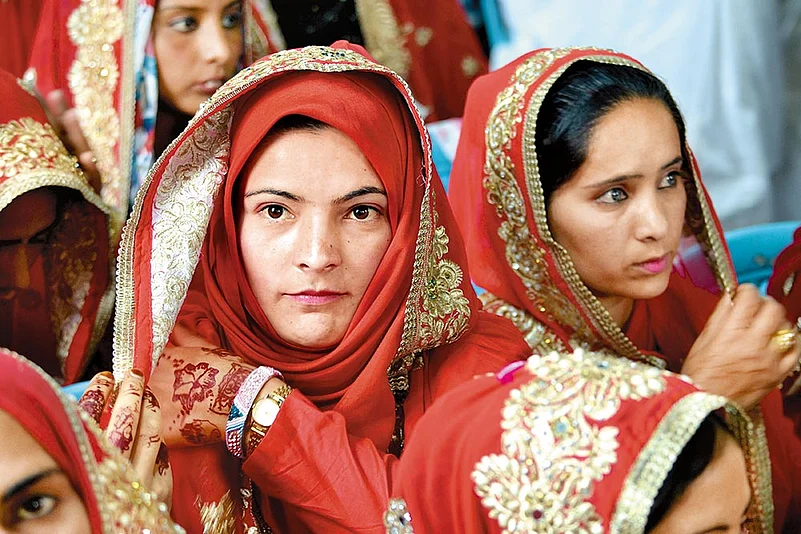It is strongly believed that Muslims are deeply religious and the Islamic religious texts—Quran and Hadith—determine every aspect of their personal/family life and social conduct. In this schema, Muslims are bound to oppose uniform civil code (UCC), which in principle, goes against their commitment to Islamic shariat. For its part, UCC is presented as a well-defined set of laws, aiming to secularise, modernise and even nationalise religious communities along the Hindu code bill.
Interestingly, these politically-charged formulations are factually wrong. Muslims are not as religious as we think; and UCC as a draft law does not exist at all. Surveys conducted by the CSDS-Lokniti tell us that, contrary to the popular belief, Muslims do not think of themselves as ‘very religious’. Similarly, there is no consensus on the idea of UCC and even the law commission does not approve of its desirability. And yet, the pro-UCC radical Hindutva backers and the self-claimed protectors of shariat want us to believe that Muslims will never accept UCC. This is precisely the reason why Muslim reactions to UCC must be analysed as a political question.
Two important, yet speculative, issues about possible Muslim attitudes must be taken into consideration. What would be the official idea of UCC and how will it be presented in the form of a law? And who would be identified as the authoritative voice to represent the imagined Muslim anxieties and grievances? We must remember that the debate on UCC began two years ago. The law commission initiated a process of collecting opinions of stakeholders on the future draft of UCC. It circulated a structured questionnaire to collect views of concerned citizens and later came out with a detailed report on UCC.
The report argues that in the absence of any consensus on UCC, “the best way forward may be to preserve the diversity of personal laws but at the same time ensure that personal laws do not contradict fundamental rights guaranteed under the Constitution”. In other words, the commission gives priority to the notion of legal pluralism by recognising fundamental rights as the basic source to reform personal laws of communities, including Hindus.
We don’t have any information about the proposed UCC law. However, in current circumstances, it is likely the government may not go for a wider public consultation or even a debate in Parliament to get the UCC law passed. In such a scenario, Muslim reactions would be contingent upon the ways in which the official idea of UCC is politically explained by the BJP establishment. UCC, after all, is not about reforming the Islamic law or Indianising Muslims.
But, who will represent Muslim views? The triple talaq debate has shown that the government identifies its own adversaries. Unlike the Rajiv Gandhi government that relied entirely on the All India Muslim Personal Law Board (AIMPLB) for drafting the Muslim Women (Protection on Divorce Act) 1986, the Modi government has been critical of the Muslim religious elite. However, the negative image of the AIMPLB has been tactically used to publicise the positive attitude of the government towards Muslim women. This undue state recognition has strengthened the media value of the Islamic clergy. The ulema have successfully carved out a space for themselves as decisive interpreters of religious texts. If UCC is presented as a Muslim-centric law, the AIMPLB would certainly find a new political life as the custodian of Islam and the shariat.
Muslim women’s organisations do not subscribe to this imagined binary between Hindutva and ulema on UCC. The Bharatiya Muslim Mahila Andolan’s (BMMA) position on UCC is relevant in this regard. Instead of demanding a universal law, the BMMA stresses the need to have a gender-just family law for Muslims. The movement uses empirical evidence (surveys, etc) to justify its interpretation of gender-just Muslim family law. The triple talaq debate could not become a provocative Muslim issue because the plurality of Muslim views did not allow the government or the ulema to emerge as key players. This assertion of Muslim plurality is likely to determine the fate of any proposal for UCC, even if it is presented as a Muslim-centric law.
(The writer is an associate professor, Centre for the Study of Developing Societies (CSDS), New Delhi)

























